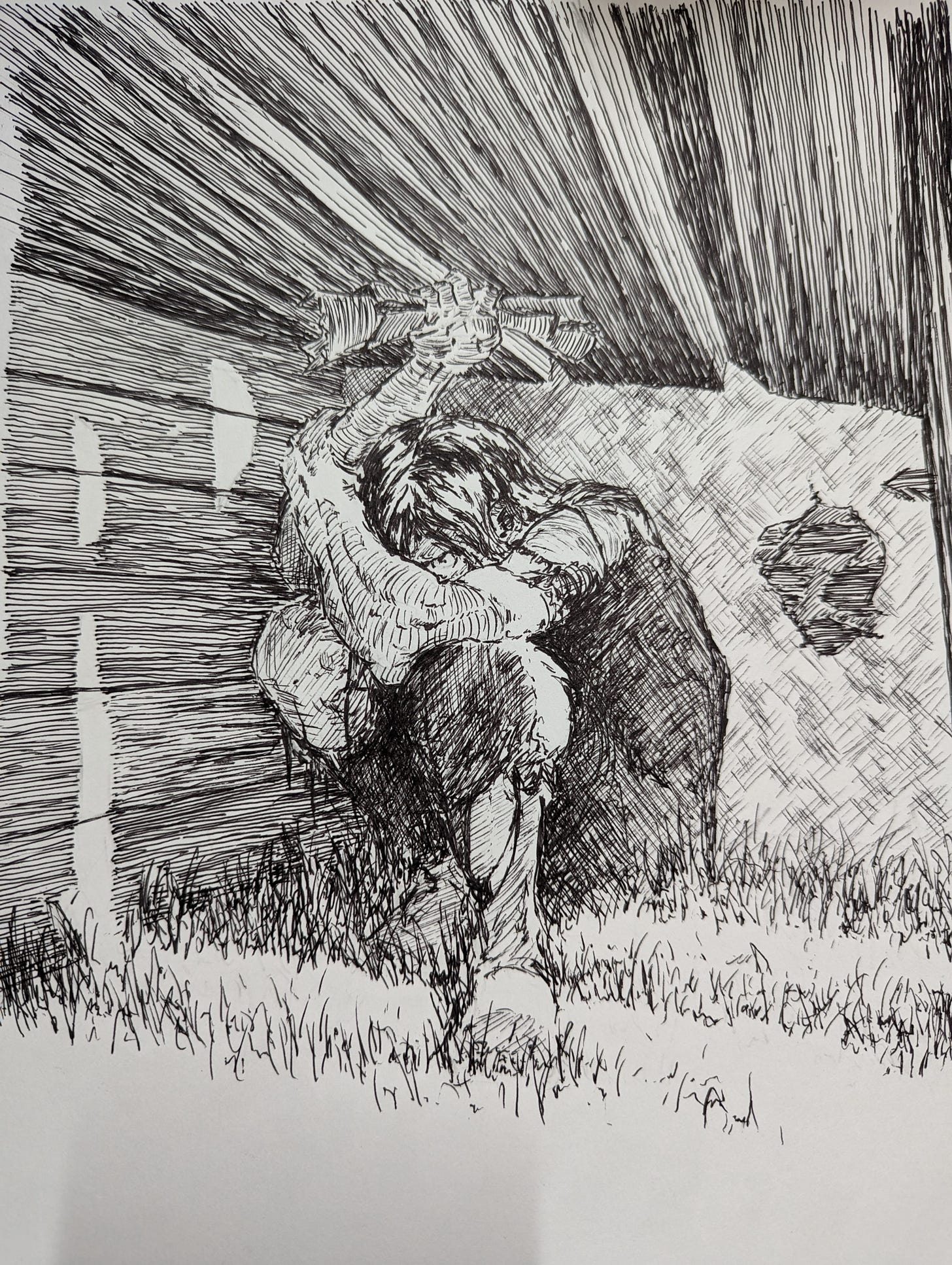Learned Helplessness
How organizations and people become risk averse and how to challenge those ideas in your professional and personal life.
“I wish I could draw like that…but...I'm not artistic.”
“I wish I was good at math…but I was born without the math gene.”
“I wish I could play music but…I don’t have a musical brain.”
Sound familiar? I call this “Learned Helplessness” - a state where we've convinced ourselves we cannot do certain things or overcome certain challenges, so we stop trying altogether. What's worse is we don't question it. We just move on.
Imagine what you would achieve if you didn’t know it was impossible.
This infiltrates corporate life too: “We tried that, it didn't work”, “Legal won't allow that” or “Customers won't want that, it's too difficult, we don't think it's worth it.” This attitude has killed more innovation and good ideas than probably anything else in business.
Corporate Learned Helplessness: A Case Study
During my interview at Audible, I asked a question: “I've noticed the content you deliver is download-only. How come you guys don't stream your content?”
The response surprised me. It wasn't that they hadn't considered streaming - they wanted to implement it but claimed they “just couldn't get there.” When I dug deeper, I uncovered the organizational learned helplessness:
When I asked the Engineering team, they said, “That'd be great, but Legal wouldn't approve it.”
When I asked the Legal people, they said, “That'd be great, but we don't have the tech to protect the content.”
When I asked the Content group, they said, “That'd be great, but the rightsholders would never agree to it.”
When I asked the Senior Leadership, they said, “That'd be great, but this is how we've always done it, and our current method is not broken.”
It was clear that a download-only approach was a legacy technique with numerous drawbacks:
The audiobooks were downloaded to a device that needed enough storage to store the content, versus a streaming model, which would rely less on storage.
They weren't using industry standards. Content only played on the proprietary device or devices that had the proprietary logic to decode the content.
Downloading meant members had to plan ahead and load books onto their devices while connected to WiFi. The company hadn't anticipated where broadband, cellular connectivity, and user expectations were heading.
Customers were increasingly expecting instant access to content. e.g., at that time, Netflix was already moving away from DVDs to a streaming model (anyone remember the Quickster debacle? 🤦).
Every department responded with some version of “That will never work here.” And so, streaming had to wait. This pattern of organizational resistance reveals the deeper psychology behind why we so often choose inaction over innovation.
The Psychology Behind Opting Out
Why do we fall into these patterns? Because it's comfortable. Because humans are frail, and our preference is to protect our egos.
We create self-protective mechanisms that shield us from potential failure. It's more comfortable to opt out and do nothing than to try, risk failure, and feel incompetent. We give ourselves excuses we can't control e.g. “I wasn’t born with the talent I need”, even though we know that hard work and persistence typically outperform raw talent. The path of wishing without trying spares us from confronting our limitations and the effort required to overcome them.
Breaking the Cycle
The other day, someone asked me, "How do you have so many interests?"
My response: "I'm old!"

Throughout my life, I've tried electronics, woodworking, painting, pen and ink, running, guitar, plumbing, carpentry, and recently, piano. I'm currently (very slowly) learning Mandarin (hěn guo shi ren shi ni). In each case, I've led with curiosity. Something sparked my interest, and I wanted to learn more about it. When that happens, it's hard for me to put it down. I think, subconsciously, my curiosity has outweighed my lack of confidence. I'm ok with being a beginner.
Everyone wants to be where you are, but no one wants to walk the path it took to get there.
Each new skill or endeavor started with accepting that I wouldn't be good immediately, but I could improve with practice and persistence. It kills me when someone says, "Yeah, but I can't draw". Bernie Wrightson was one of the world's best pen and ink artists, but he wasn't born that way. If you can hold a pen and make a mark on a page you can draw. You literally can draw!!!
Get used to saying “I can’t draw…just yet”.
Steps to Break Free from Learned Helplessness
1. Question Everything
Things change - what was once a valid assumption can become invalid. That blocker you thought was a solid immovable rock might actually be crumbling with time. Push on it!
Take note: Every time a new team member joins your group you get this “question everything” attitude for free. Embrace new team members’ perspectives. They bring new ideas that aren’t influenced by your baggage.
2. Be Willing to Fail Publicly
There's no shame in trying. Visible failure often inspires others to take risks, too. As I discussed in my previous article on Accountability, making your attempts visible creates powerful motivation.
Social media is filled with "perfection" but hides the multiple attempts it took before nailing things. Hiding the attempt hides the reality that mastery only ever comes through thousands of failures.
3. Create a Safe Environment for Risk-Taking
Support others when you see them trying something outside their comfort zone. Celebrate the attempt as much or maybe more than the success.
4. Don't Be Afraid to Ask the "Stupid" Question
Stupid questions are hardly ever stupid. They normalize learning. Sharing your thought process might reframe the entire problem you're trying to solve.
5. Challenge the Status Quo
When you hear “We tried that, it didn't work” or “That's how we've always done it, why would we change,” recognize these as red flags of organizational learned helplessness.
Walking the Talk
I spent last week in Taiwan and made a complete fool of myself every day and at every opportunity by speaking Mandarin. I don't speak Chinese, but I've been learning the last 180 days, and I have a few phrases. My pronunciation is bad. I use the wrong words. I say “Bù kèqì (you're welcome)” when I should say “Duìbùqǐ (I'm sorry)”.
I'm happy to be a novice because on the other side lies competence and maybe one day mastery. And it’s just fun! The appeal of being able to speak to my team and relate to their culture is too great not to try.
The most dangerous phrase in business isn't "we're going to fail" - it's "we can't even try." Whether in your personal development or your organization's growth, recognizing and challenging learned helplessness opens doors to innovation, growth, and fulfillment that otherwise remain firmly shut.
Dreaming of Streaming…
As for Audible? Well, we did finally implement streaming audio. I spoke to Legal, Content, the C-Suite and Engineering and in each conversation addressed their concerns. That capability unlocked a vast array of business opportunities. We integrated Audible into the first Echo devices, and it became a Hero feature on that platform. Even today, you can listen to Audible in your Tesla…all through Streaming.
Are there areas of your life you been telling yourself “I can’t, it’s not possible”?
Imagine what you would achieve if you didn’t know it was impossible.





